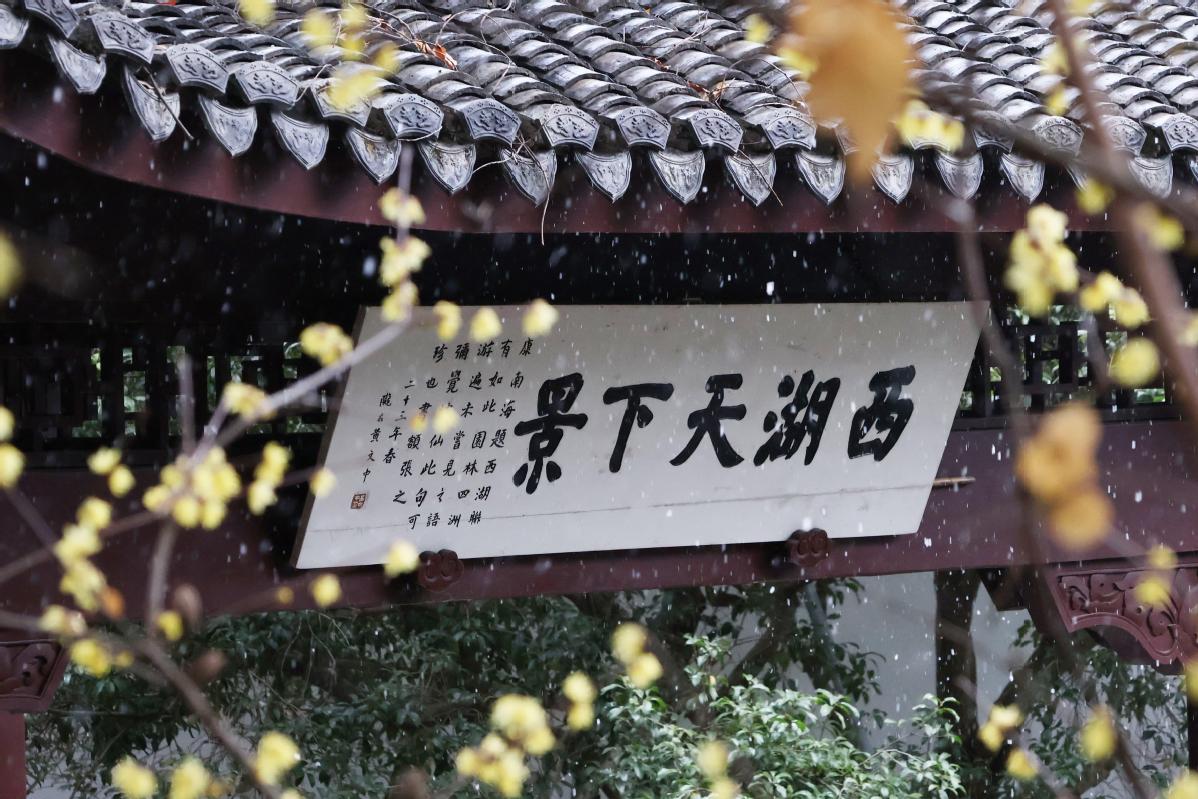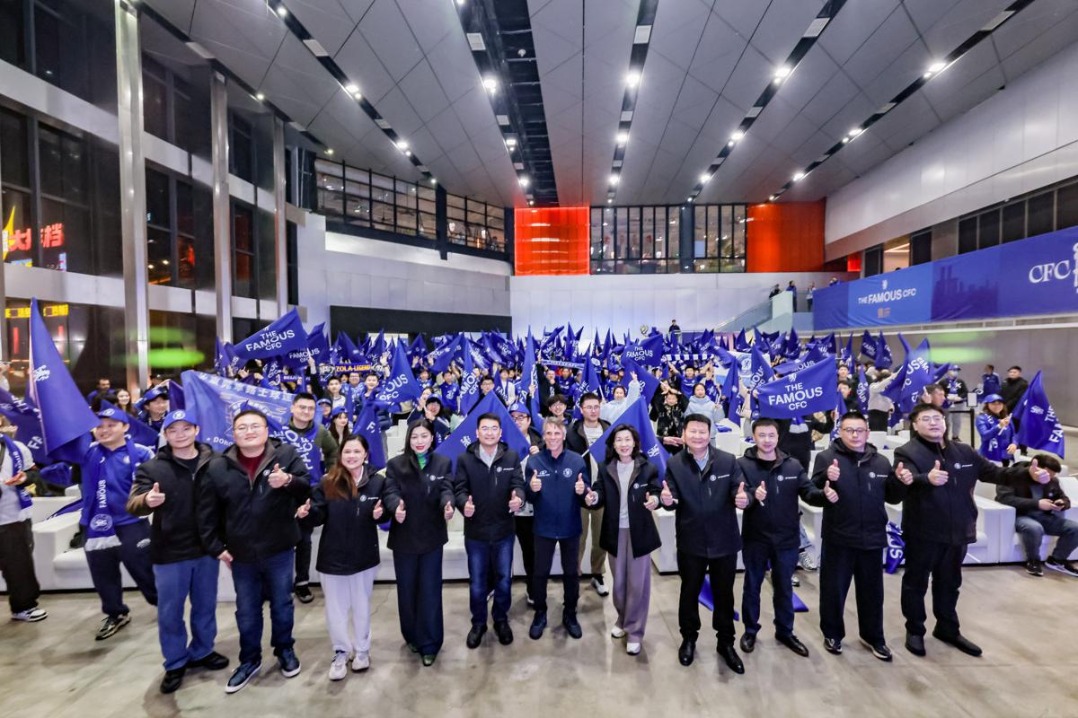New Year traditions on hold


Around this time every year, a few days before the Lunar New Year, Jenny Wong and her husband, Albert Wong, usually are packing for their cross-boundary trip to Guangzhou for a family reunion — a typical trip for many Hong Kong people. This year, however, the tradition has to give way to the pandemic-induced new normal.
"It's frustrating," said Jenny Wong, a retired administrator in her 70s, "I cannot go anywhere," citing the compulsory quarantine — lasting at least 14 days — on the Chinese mainland to curb the transmission of COVID-19.
Born and raised in Hong Kong, the Wongs are accustomed to visiting their mainland-based siblings with delicate Hong Kong pastries and dim sum to celebrate the Lunar New Year. But this year, there is no holiday shopping. What's more, the Wong Tai Sin festival ceremony and Che Kung Festival Fair have both been canceled because of the coronavirus.
Without tourists from the mainland, family reunion dinners and holiday-gift purchasing, Hong Kong, a shopping paradise, is embracing an unprecedented Lunar New Year.
The festival season will be "drastically different" from previous ones in consumer traffic and spending. "The retail sector will remain challenging amid the lingering impact of the pandemic, as inbound tourism is unlikely to see a swift rebound in the near term," said Michael Cheng, Chinese mainland and Hong Kong consumer markets leader at PwC Asia Pacific, in an interview with China Daily.
Cheng predicted that Hong Kong retail sales in January 2021 will shrink by 18 percent from January 2020, while February sales will increase by more than a third compared with the same period last year, shortly after the pandemic first struck the city, to HK$30 billion (US$3.9 billion). "We expect a seasonal upsurge in shop traffic as local consumers engage in festival shopping ahead and during Chinese New Year," Cheng said. "This would translate into a sales spike in the first half of February and a relatively muted second half."
The consumption will be driven mostly by local shoppers with extra savings and pent-up demand accumulated from the long-curbed physical shopping, Cheng said.
"Hong Kong consumers have been saving up over the past year as various movement restrictions curbed physical spending such as travel, gyms, and beauty. Some have turned to the stock market and benefited from the recent bull run, while interest rates remain at ultralow levels. The resulting wealth accumulation has, to some degree, increased purchasing power and created latent demand for physical consumption as soon as restriction measures eventually ease up."
The Year of the Ox is unlikely to shower retailers with bullish sentiment. "A lack of clarity about the resumption of inbound tourism, particularly from the mainland, will put pressure on brick-and-mortar retailers, at least through the first half of 2021," Cheng said. He forecasts retail sales of 2021 to rebound by 15 percent to HK$376 billion from last year, providing that Hong Kong's travel restrictions are subsequently removed by the third and fourth quarters.
Technology offers a beacon of hope to the retailers who are still reeling from the heavy blow in sales during the pandemic. "A number of local e-commerce platforms have emerged successful in taking advantage of increased online traffic, social-commerce, and prevalent trends of livestreaming," Cheng said. He suggests businesses adapt to a changing consumer profile and establish closer relationships with local customers through online promotion campaigns and loyalty programs.
Some are already taking such action. Shopping malls across town, whether painted in auspicious hues or embellished with New Year-themed red balloons, are marching toward the long-expected spending spree from patrons with all they have to offer. "Local consumption will be the key contributor for our malls," said Fiona Shiu, deputy director of retail (Hong Kong) at Swire Properties, which owns Pacific Place, Cityplaza, and Citygate Outlets in Hong Kong. "We are seeing Chinese New Year campaigns launched much earlier this year, with more diverse offerings and customer-centric approaches — for example, providing personalized services that can help to drive sales." For some restaurants, "special Chinese New Year menus can be delivered right to your door," Shiu added.
Despite a localized strategy and quick adaption to technology, Shiu predicts that "the market will remain challenging in the near term", citing a soft local consumption sentiment and an international travel standstill being the main factors.
- Former Hainan official sentenced in bribery case
- Hangzhou residents enjoy rare snowfall
- Artificial reefs part of successful marine conservation efforts in Guangdong
- Zigong lantern festival combines cultural heritage with advanced technology
- Woman executed for abusing and killing stepdaughter
- Zhangjiakou academy students hit Olympic ski slopes as winter break begins





































